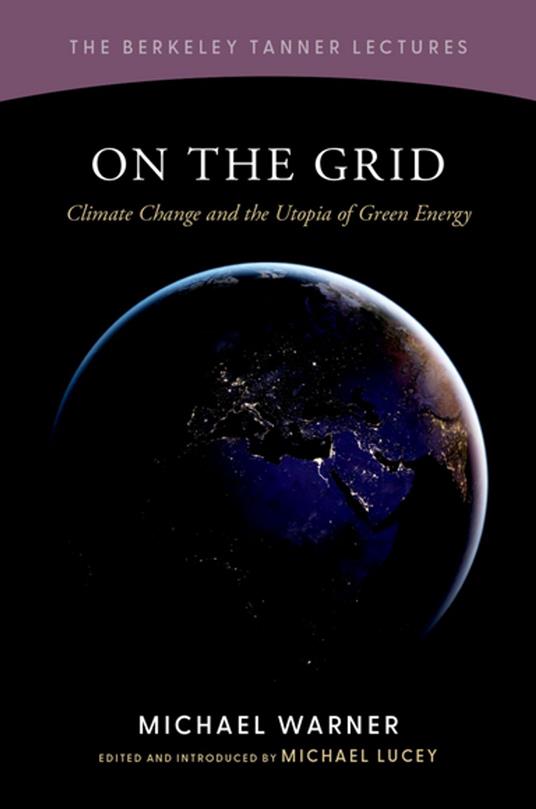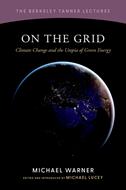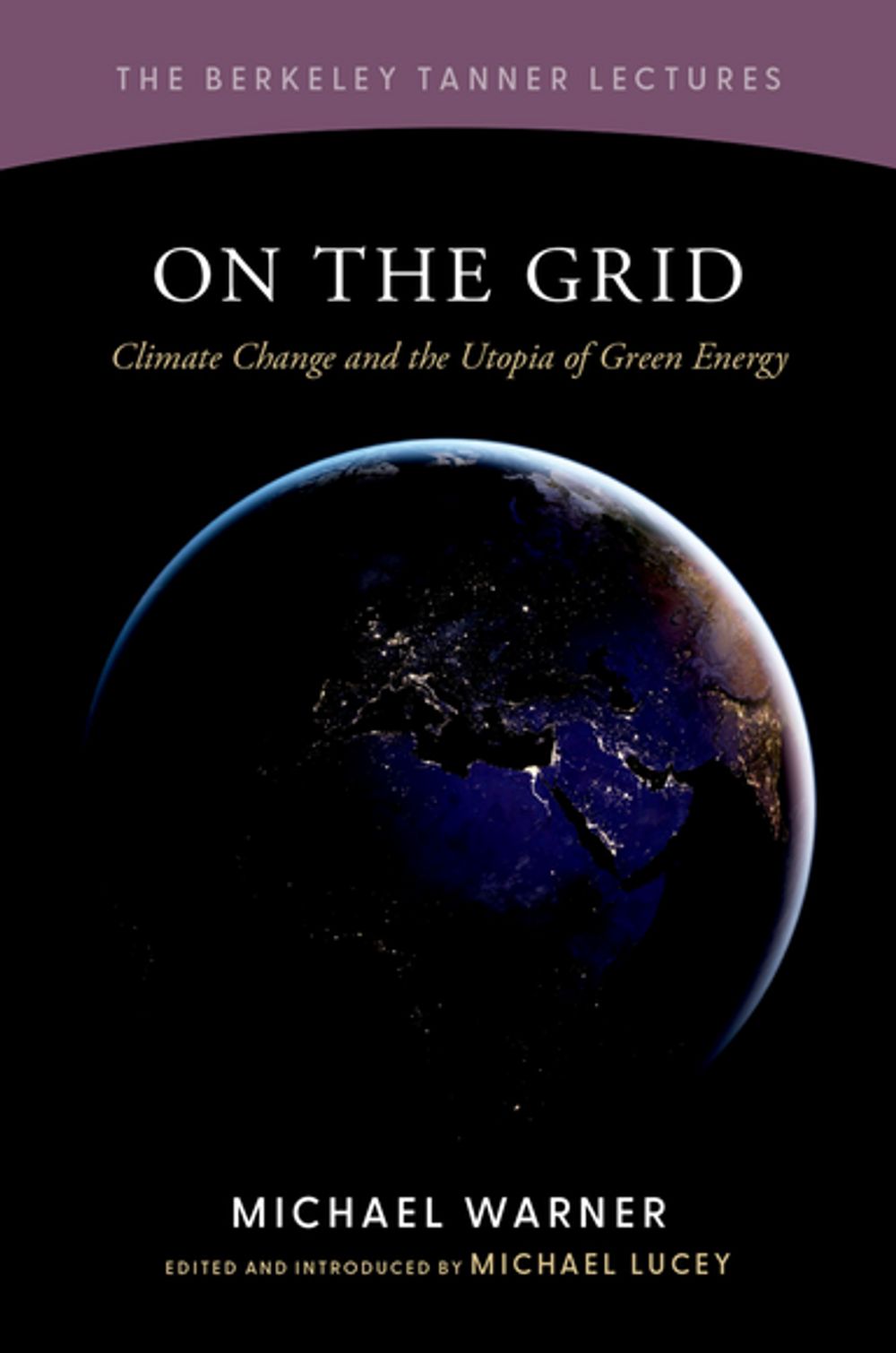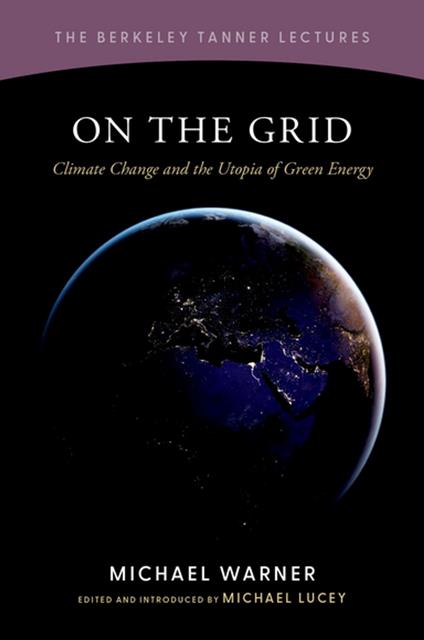On the Grid
What kind of future would the utopian idea of unlimited green energy bring about? On the Grid, based on Michael Warner's Berkeley Tanner Lectures, raises critical questions about the sharp turn in environmental thought which addresses climate change through the form of a new power grid, driven by renewable energy and the goal to "electrify everything." Environmental thought increasingly centers infrastructure, particularly the goal of a decarbonized electrical grid. The aim is unlimited energy use, but without greenhouse gas emissions. Warner asks: What kind of consumer is imagined when climate action takes the form of a green grid? How will that change actions around environmental ethics and politics, for example the mantra "reduce, re-use, recycle"? What other features of the environmentalist tradition now need revision? Will carbon emissions be taken care of silently so individuals will only be asked to use more power? By what process --and with what kind of agency-- is the environmental future being built around and within us? On the Grid seeks to generate such questionings in part by reviewing the cultural and political history that has made grid infrastructure a central but usually unrecognized dimension of government, as well as a structuring framework of the modern. Warner then traces a parallel history of various kinds of resistance to the grid, from Thoreau to present, including a countercultural tradition that was formative for much of the environmental movement. Is the green grid a case of "improved means to unimproved ends"? With contributions by Dale Jamieson, Jedediah Britton-Purdy, and Anahid Nersessian, and an introduction by volume editor Michael Lucey, On the Grid starts a conversation about how the environmental tradition can better adapt to the current politics of grid reform.
-
Autore:
-
Curatore:
-
Anno edizione:2025
-
Editore:
-
Formato:
Formato:
Gli eBook venduti da Feltrinelli.it sono in formato ePub e possono essere protetti da Adobe DRM. In caso di download di un file protetto da DRM si otterrà un file in formato .acs, (Adobe Content Server Message), che dovrà essere aperto tramite Adobe Digital Editions e autorizzato tramite un account Adobe, prima di poter essere letto su pc o trasferito su dispositivi compatibili.
Cloud:
Gli eBook venduti da Feltrinelli.it sono sincronizzati automaticamente su tutti i client di lettura Kobo successivamente all’acquisto. Grazie al Cloud Kobo i progressi di lettura, le note, le evidenziazioni vengono salvati e sincronizzati automaticamente su tutti i dispositivi e le APP di lettura Kobo utilizzati per la lettura.
Clicca qui per sapere come scaricare gli ebook utilizzando un pc con sistema operativo Windows



